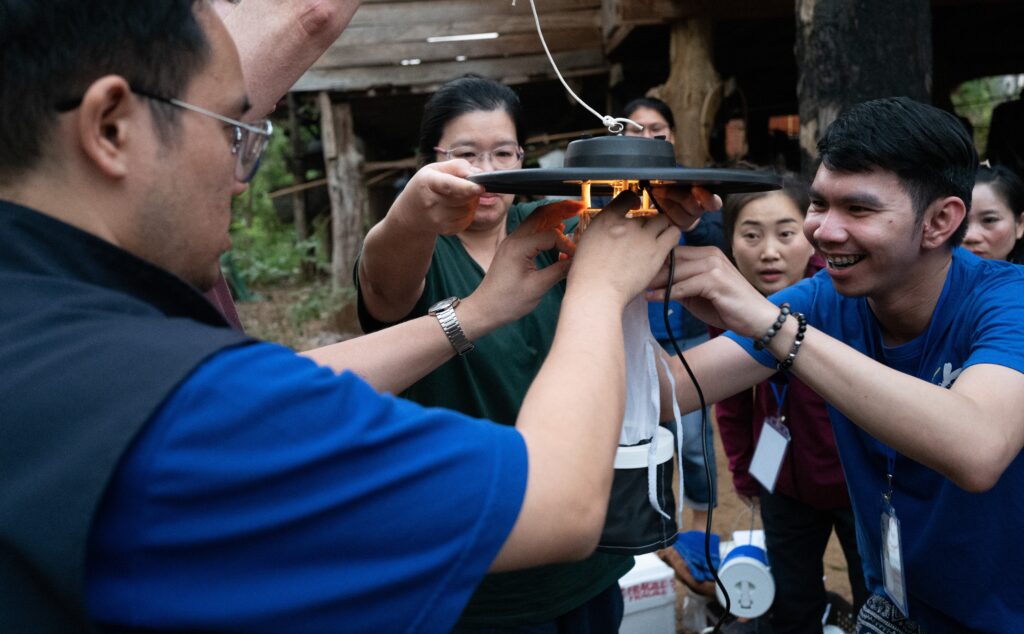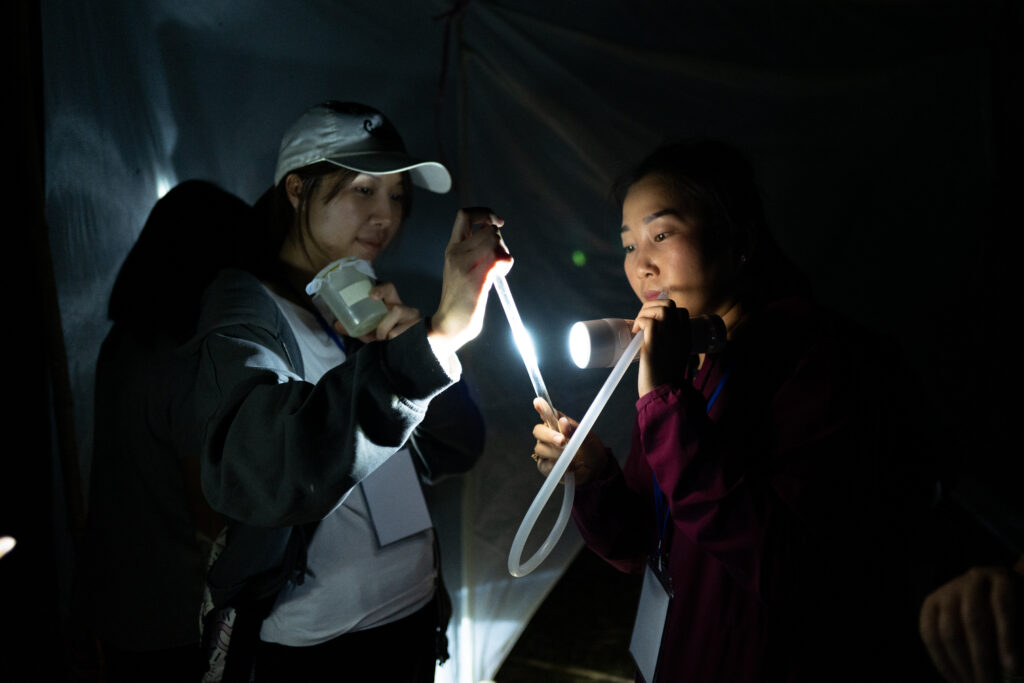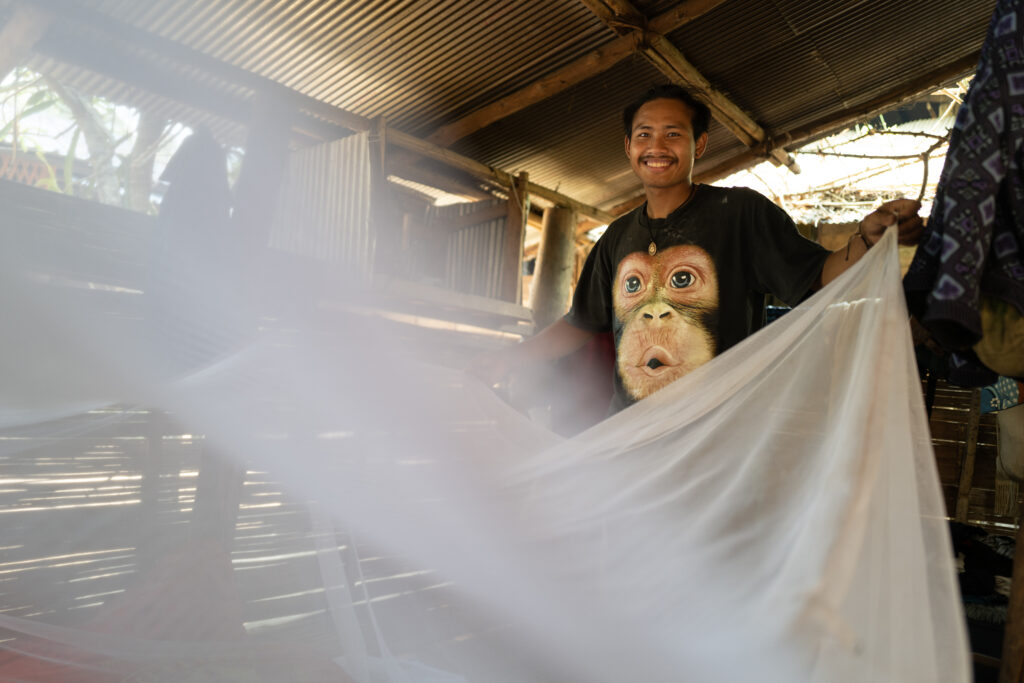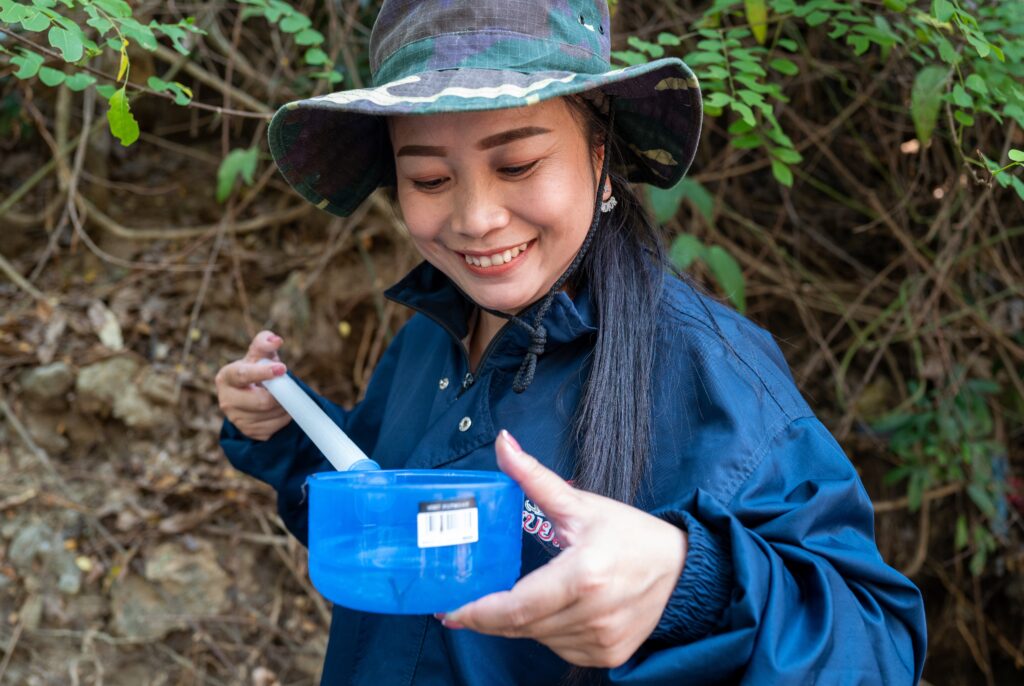“This workshop on entomology and disease control between Thailand and Lao PDR achieved its aim to serve as a forum for academic exchange and knowledge transfer among experts, both domestically and internationally. The training has also built a community of practice for the prevention and elimination of malaria in the Mekong region.”
-Siriporn Yongchaitrakul, Chief, Entomology and Vector Control Group, Division of Vector-Borne Diseases, Ministry of Public Health, Thailand
On World Mosquito Day this year, we reflect on how the study of mosquitoes is crucial to combating vector-borne diseases in the Greater Mekong Subregion. Mosquitoes can spread a variety of different parasites or viruses. For example, the Aedes mosquito is responsible for transmitting dengue fever, yellow fever, chikungunya virus, and Zika virus, while the female Anopheles mosquito spreads malaria. Medical entomologists dedicate themselves to studying the physiology, breeding patterns, and behavior of mosquitoes to inform programs that keep people safe from mosquito bites and diseases.

Workshop instructors demonstrate how to use a light trap to collect adult mosquitoes. Photo Credit: Todd Brown, RTI International
The U.S. President’s Malaria Initiative (PMI), led by the U.S. Agency for International Development (USAID) and co-implemented with the U.S. Centers for Disease Control and Prevention (CDC), has supported Thailand, Lao People’s Democratic Republic (Lao PDR), and the region to fight malaria since 2011.
In support of Thailand’s goal to eliminate malaria, the Thai Division of Vector-Borne Diseases (DVBD) alongside the Thailand International Cooperation Agency (TICA) and USAID/PMI with technical support from U.S. CDC, jointly organized a two-week-long workshop for 21 entomological staff from Lao PDR and border provinces in Thailand.
This workshop aimed to strengthen cross-border partnership between the two countries, share information and updates on techniques to study mosquitoes, and enhance the entomological skills of the participants.

Participants practice using animal baits to sample adult mosquitoes. Photo Credit: Todd Brown, RTI International
“As participants, we unanimously agreed that this curriculum provided essential skills to both entomologists and other officers from Lao PDR and Thailand,” said Pongthep Tabut, Technical Officer from Thailand’s Sakhon Nakorn province.

Thailand’s vector control strategy includes distribution of insecticide-treated nets. Photo Credit: Todd Brown, RTI International
The curriculum covered mosquito biology, vector control methods that kill mosquitoes or prevent them from biting people, monitoring mosquito resistance to insecticides, and how to track cases of malaria as they arise. In places like Thailand that are on the cusp of eliminating malaria, entomologists play a crucial role in the fast and targeted responses to any malaria cases that are detected at a specific location or among a specific population.
To complement this initiative, Inform Asia: USAID’s Health Research Program developed a module on best practices in entomological data management, analysis, presentation, and use.
The Thai DVBD plans to send staff to Lao PDR in six months to observe practices and offer onsite troubleshooting, which will further strengthen relationships and cooperation to support effective responses to malaria cases in border areas.

A participant from Lao PDR collects Anopheles larvae; entomological surveys are a crucial part of effective vector surveillance. Photo Credit: Todd Brown, RTI International
The cooperation will help keep people safe from a number of mosquito-borne diseases. Since entomologists target mosquitoes directly, they can combat the spread of multiple vector-borne diseases and respond quickly to outbreaks. For example, dengue and malaria are both endemic diseases in Thailand; a strong entomological capacity in one disease can also help fight the other and enables sharing of best practices. Recently, DVBD entomologists used their existing skills to address an unexpected Zika outbreak, preventing the virus from gaining a strong foothold in Thailand.

A workshop instructor explains the importance of proper indoor residual spraying for vector control. Photo Credit: Todd Brown, RTI International
Mosquitoes may be the deadliest animal in the world, but thanks to PMI and partners, Thailand and its neighbors can sleep safely knowing that entomologists are ready to protect them.
Cover Photo: A participant identifies the vector species after inserting the aspirator with adult mosquitoes from a night catch into a plastic cup. Photo Credit: Todd Brown, RTI International
As part of PMI’s support for malaria efforts in the Greater Mekong Subregion, Inform Asia: USAID’s Health Research Program promotes the use of evidence-based strategic information to accelerate malaria elimination in Thailand and Lao PDR. Since 2015, the program has partnered with national malaria programs to strengthen surveillance systems, evaluate strategies and tools, and harness the power of data to ensure healthy, safe, and productive lives.
